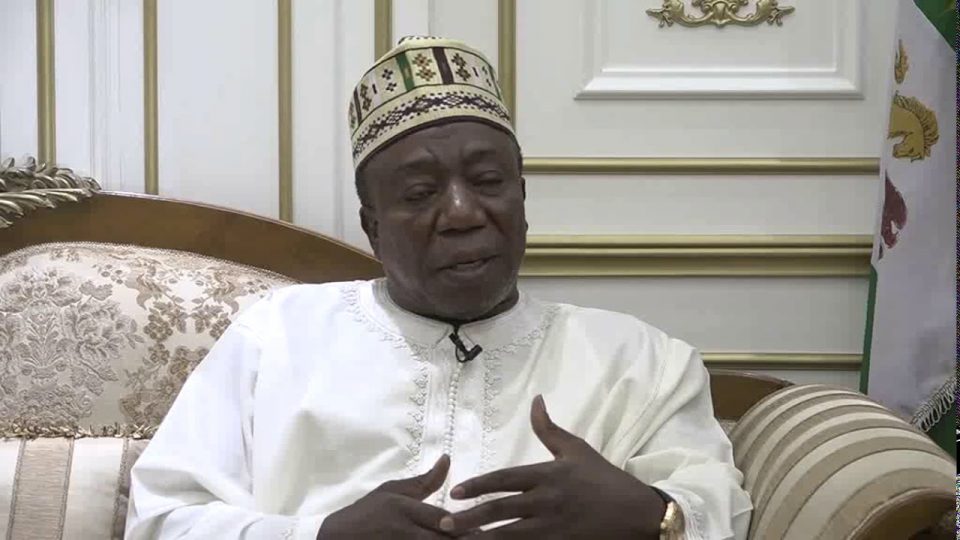The Chairman, Senate Committee on Works, Sen. Adamu Aliero, says pension funds are viable alternative sources to fund infrastructural projects, maintaining that borrowing 10 to 30 percent of such funds will reduce infrastructure deficit in the country.
Aliero stated this in Ibadan at the end of the committee’s oversight tour to the six states in the South-West geo-political zone.
According to him, the committee has been to many states across the country and seen the level of infrastructural deficits.
“Virtually every state you go, you find out that the roads are not in good shape. If there are companies and individuals who are willing to take these roads, I don’t see reason why they should not be allowed.
“Even if state governors are ready to take over rehabilitation and reconstruction of federal roads, we should allow them to do it.
“Some of the projects have been on for a long period due to paucity of fund. It is so wide that budgetary allocation alone cannot fund it. We have to find indigenous ways of funding roads, railway and power.
“We need to get alternative ways of funding; that is why it is important we have to explore the possibility of using pension funds for infrastructural development,” the senator said.
Alternatively, he said that the private sector could be allowed to take some of the roads, adding “they can rehabilitate them, reconstruct them and be allowed to manage them until they recoup their investments.”
The committee chairman stressed that it might take 15 to 20 years to complete the construction of the roads that are currently being undertaken by the Federal Ministry of Works and Housing if budgetary allocations had to be depended on.
According to him, there are 522 roads and only N170 billion is to fund them.
“ On certificates that are issued by the engineers to the ministry, we have close to about N400 billion liabilities and we have N170 billion allocation; so it means ii is not even enough to serve half of the liabilities.
He said that the senate was seriously looking at this and that it would come up with an enabling legislature that would make it possible for the private sector to come in.
This, Aliero said, would be done by looking at the existing law that might be hindering investment in the road, railway and housing sectors.
“We will initiate legislation that will remove all the bottlenecks; we believe if we do this, it will go a long way in filling the infrastructure deficit we have,” he said.
On the use of pension fund, the chairman said “ I understand that the pension fund is about N14 trillions. I don’t see why pension funds should not be used to rehabilitate our roads.
“After all, the money is not required at once; it will take about 15 to 20 years before it can be required to pay pensioners.
“So, if we can use 10 to 30 percent of the funds on our roads, it will go a long way in solving the infrastructure deficits,” he stated.
On infrastructure bonds, Aliero said that a number of countries were using the bonds to fund railway and road projects, urging the Federal Government to borrow a leave from countries such as South Africa, Indonesia, Egypt and Morrocco.
According to him, the countries are with superb infrastructure, adding that they are not using government money to fund those infrastructure.
“Wherever you go in these countries, you will find tollgates after every 50 kilometers; you pay money and you go.
“We believe that if this is done in Nigeria, our infrastructure will improve a lot and transportation will be made much easier to accelerate economic development; businesses too will spring up everywhere,” he stated.
Aliero cited the example of Ikorodu-Shagamu road, where, he said, the committee noticed the presence of many factories and even power plant, expressing that some of the factories had been shut down due to deplorable condition of the road.
“Good roads are synonymous with economic investment and prosperity; the better the roads, the more improved income capacity will be,” he said.
The committee chairman called on governors and their respective state executive councils to strongly consider alternative sources of funding roads in their states, saying budgetary allocation alone could not solve the problem.
The committee is on inspection of the ongoing federal road projects across South-West states as part of its oversight functions.
The tour will enable the lawmakers see the progress of work being done with a view to determining funds allocations in the upper legislative house.
Members of the committee include Sen. Sahabi Ya’u, Sen. Danladi Sankara, Sen. Chukwuka Utazi, Sen. Kabiru Gaya, Sen. Lekan Mustapha and the Clerk of the committee, Foluke Ogunbayo.
The Director of Highways, South-West, Mr Funsho Adebiyi, and the Federal Controller of Works in the zone are among also part of the team




